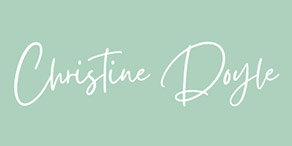
Why I No Longer Call Myself a Therapist
For over a decade, I worked as a counsellor and psychotherapist. I sat with people in their hardest moments, offered tools and models, and held a clinical space for healing.
While therapy has supported many, in my experience as both client and practitioner, it can often miss the mark for Autistic, ADHD, and AuDHD people — and can even do harm when framed through neuroconformity.
As time went on, especially after my own late discovery of AuDHD, I began to notice that the women who found their way to me weren’t always looking for therapy in the traditional sense. They weren’t coming for treatment plans, techniques, or symptom reduction. They were coming because they wanted to sit with someone who got it.
Someone who understood masking.
Someone who had walked through burnout.
Someone who knew the mix of confusion, relief, and doubt (and everything in between) that comes with late discovery.
Someone who felt the muddle and grief of lost relationships.
Someone who had already sat with hundreds of late-identified Autistic and ADHD (AuDHD) women and could recognise the patterns that emerge.
They wanted space, language, and information. They wanted to ask questions without being pathologised. They wanted to feel less alone.
And I realised: therapy wasn’t always what they needed.
How I Was Trained
As a therapist, I was trained in a certain way: how to sit, how to reflect, always to remain boundaried; to be a mirror and never a sharer. I asked deep questions.
I have since realised how often this stance was not respectful of Autistic and ADHD clients. Many of us need to feel validated, not assessed. We need to feel heard — often through stories, which offer a richness of understanding that helps us to make sense of things. For those of us with delayed processing, we may not know the answer to a question in the moment, and being pressed can feel like failure, when in reality we just need time.
Therapy also often assumes that asking about feelings is the way forward. But for many of us with alexithymia, the reality is that we often don’t know exactly how we feel. More often than not, we feel many things at once about a situation, not one simple answer. For me, it can sometimes take years to arrive at an answer to the question “how does that make you feel?”
The Limits of a Therapeutic Frame
Autistic and ADHD (AuDHD) people need validation far more than assessment and treatment. We need to hear that our truth, our way of interpreting the world, is real and legitimate. Yet therapy, even unintentionally, can encourage us to mould ourselves to fit a neuronormative type. Even within the non-judgemental space of the therapy room, we can feel the need to mask and adapt.
I was never trained to notice this. Across my years of training, I received zero hours on autism, ADHD, or neurodivergence. That silence is not accidental — it’s a reflection of the othering that exists in society.
And so many therapists, through no fault of their own, are not offered the skillset to meet the needs of Autistic and ADHD (AuDHD) people. This is despite the fact that we often encounter more trauma, are more frequently misunderstood, experience more relational challenges due to the empathy mismatch across neurotypes, and live in a world that feels overwhelming to our sensitive, monotropic, deeply ruminative bodyminds.
Therapy Can Harm
I have felt misunderstood in therapy more times than I can count. My ways of interpreting the world were questioned. My truths were reframed back to me as cognitive distortions. And I now realise that in my own work as a therapist, I may also have caused harm — not intentionally, but because the frame I was given to work within was itself based on neuroconformity.
Yes, therapy has been and continues to be of great benefit to many, especially with the right therapist. But in my personal and professional experience, it was not always the right fit — for me, or for the late-identified Autistic and ADHD (AuDHD) women who came to me looking for something different.
Why I Don’t Use the Word Therapist Anymore
Therapy implies brokenness. Think about how we use the word in everyday life — physiotherapy for an injured muscle, chemotherapy for cancer, radiotherapy for tumours. The word is almost always associated with something to be treated, reduced, or fixed. And I do not believe Autistic or ADHD (AuDHD) people are broken or in need of fixing.
Therapy isn’t always the support we need. For some, especially with a neuro-affirming therapist, it can be transformative and life-changing. But for others — and this is where my own experience lies — what we deserve is a space to explore our truth. To feel validated, deeply listened to, and understood. To be with someone who doesn’t need everything painstakingly explained, who won’t misinterpret or question every perspective — but who can simply say: “I know.”
That’s the work I now do. Not as a therapist, but through Post-Identification Companion Work — sitting alongside Autistic and ADHD (AuDHD) women as they make sense of late discovery, unlearn myths, and find their own language for who they are.
Honouring All the Spaces I Hold
Over the years, many clients — both neurodivergent and not — have come to me for what was called therapy. And while I’ve never been a traditional therapist in the narrow sense, I’ve always held space for people to grow in self-awareness, to make meaning of their lives, and to find the courage to live more closely to their truth despite the expectations placed upon them.
That work has mattered, and it still does. But what has become clearer to me over time is where my deepest focus lies now.
My work today is more centred on supporting late-discovered Autistic, ADHD, and AuDHD women. This means offering presence and validation, sharing both lived and professional insights, and creating safe spaces where they can reclaim their voice, sense of belonging, and ways of thriving — both internally and externally.
My AuDHD Strengths in This Work
I also recognise that the qualities my clients most value in me are not separate from my being Autistic and ADHD (AuDHD) — they are part of it. My strong intuition, my ability to deep dive, my hunger for meaning-making, my capacity for deep listening, and my open-mindedness are not skills I was simply trained into; they are me, unmasked.
My observational skills and pattern recognition allow me to notice the subtleties others might miss. My curiosity helps me hold space without rushing to answers. And my commitment to truth means I can sit alongside clients — whether Autistic, ADHD, AuDHD, or not neurodivergent at all — with presence and openness.
These are not deficits to be corrected. They are the very strengths that make my work what it is.
Supporting Therapists Too
Alongside my work with late-identified women, I also offer 1:1 consultations for therapists who want to better understand and support their Autistic and ADHD clients. Most therapy training offers little to no guidance on neurodivergence, leaving many professionals underprepared. These consultations are not about giving a checklist or a quick fix — they’re about exploring lived realities, unpacking common misconceptions, and finding ways to adapt practice so that neurodivergent clients feel validated rather than corrected.
Moving Beyond 1:1
Another thing I’ve noticed: while 1:1 spaces are powerful, they are not always enough. What many of us crave is community. Spaces where we can see ourselves in others, feel less alone, and know that our experiences are valid.
That’s why my work doesn’t end with individual conversations. Through the Wild Women Community, women who have been walking this path alone come together to connect, to share, and to witness each other’s truths. Because moving beyond 1:1 is often where the deepest belonging begins.
Closing Thought
I no longer call myself a therapist, not because therapy doesn’t matter — it does, and it can be vital for many — but because I have learned that it isn’t always what we need.
For the late-identified Autistic or ADHD (AuDHD) woman, what we often long for after identification is not treatment, but presence: someone to sit alongside us with openness, information, and care. Someone who has walked this path, holds the map, but knows the journey is ours to make.
That’s the work I now do. And that’s why I describe it as Post-Identification Companion Work.
For details on my 1:1 sessions, community, or therapist consultations, click here.
